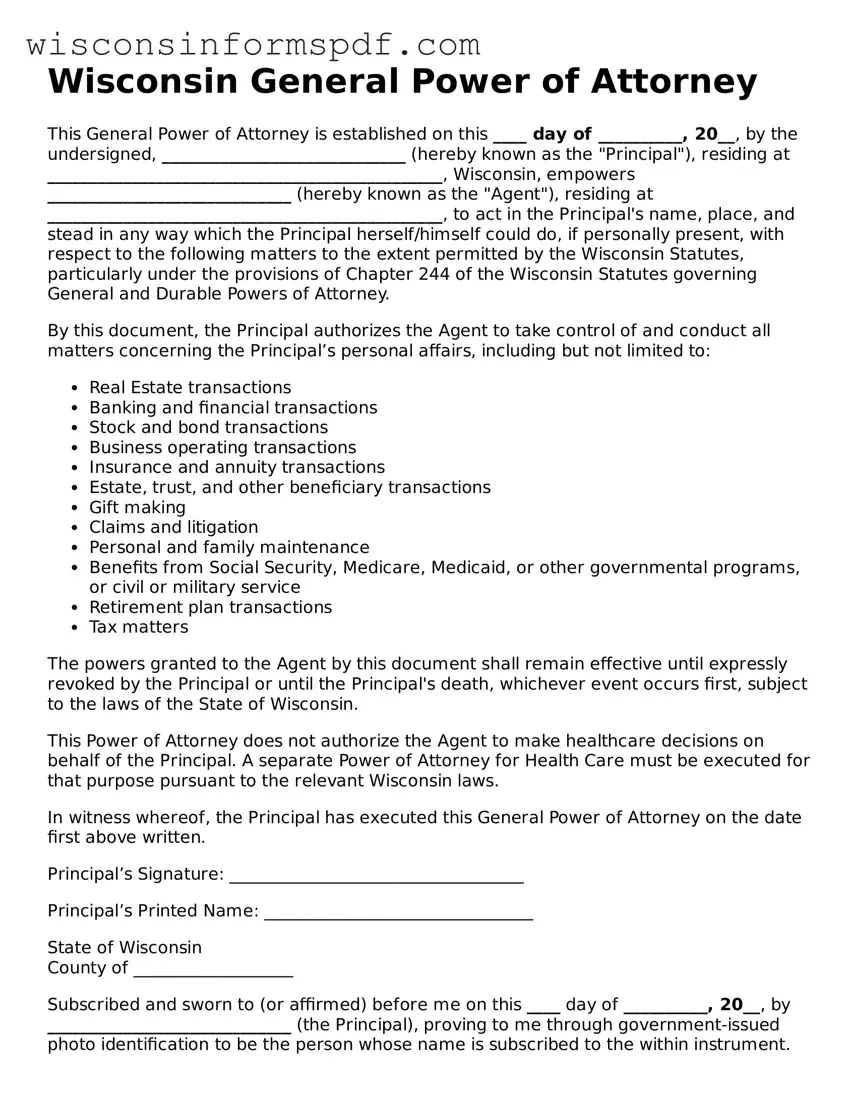Fillable General Power of Attorney Document for Wisconsin
A Wisconsin General Power of Attorney form is a legal document that allows an individual to appoint someone they trust to manage their financial affairs. This authority can encompass a wide range of activities, from handling bank transactions to buying or selling property, essentially stepping into the shoes of the person granting the power. It’s a powerful tool, providing peace of mind but requiring careful consideration in selecting the right agent.
Create My Form

Fillable General Power of Attorney Document for Wisconsin
Create My Form

Create My Form
or
Click for General Power of Attorney
Want to finish this form ASAP?
Edit General Power of Attorney online without printing or scanning.